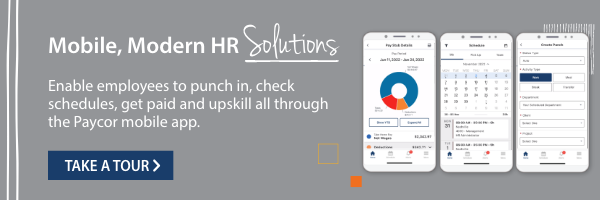When it comes to turnover rates, few industries are hit harder than the restaurant industry. A 2021 study from the Bureau of Labor found that the hospitality turnover rate eclipsed a massive 86%. While it’s far from the turnover rate at the height of the pandemic (130%), it still vastly outpaces the national average of 47%. If you just focus on the fast-food industry, you’ll find turnover rates hovering near 150%. With large numbers of seasonal and teenage workers, plus employees looking for a stop gap between jobs, restaurants face a constant struggle to find and retain high-quality talent due to the transient nature of the industry.
A lot of different factors contribute to employee turnover such as lack of growth opportunities, low pay and benefits, bad job fit, and more.
But for many restaurants, disengaged workers and a poor culture lead to high turnover. So, what can you do to create a better work environment, improve job satisfaction, and improve employee retention? Here are four tips to consider:
Identify the Right Leader
What’s one of the top reasons any employee chooses to leave a role? Compensation, job mismatch, and excessive workload certainly play a factor, but a primary cause of employee turnover stems from dissatisfaction of management. That’s why finding the right leader and investing in their development is critical to your restaurant’s overall success. When employees have confidence in and respect the person they work for, it’s reflected in their performance and attitude. In fact, Gallup found that employees who are supervised by highly engaged managers are 59% more likely to be actively engaged than employees supervised by disengaged managers.
Here are a few things to consider when hiring your next restaurant manager:
1. Pinpoint the exact restaurant job responsibilities
A restaurant owner who searches for just any manager isn’t enough. Be sure to identify the exact responsibilities of the role so you can streamline the interview process and find the best fit based on the individual’s previous work experience. Plus, level-setting proper expectations prior to hiring a manager will make the onboarding process and transition into a new role seamless.
2. Prioritize learning and development
Investing in continuous development and training opportunities throughout their career is a great way to motivate and engage any manager. It also provides managers with an opportunity to learn and develop new skills and gain outside knowledge that they can bring back to your establishment.
3. Don’t ignore internal candidates
Before you begin your search, take a hard look at your existing staff. Current employees understand your systems, operations, expectations, and your customer base. If an internal candidate has a great relationship with and is respected by the current staff, the transition may be easier than bringing in an outsider.

Make Onboarding and Training Count for Restaurant Workers
Employees who don’t receive proper training can quickly become disengaged due to a lack of support. That’s why onboarding and continuous training should be mandatory for all restaurant employees. Developing a formal onboarding process that ensures new team members have everything they need to be successful from day one is critical. Everyone should understand their roles and responsibilities and receive a detailed overview of policies and procedures. At Paycor, we’ve created a restaurant-specific Onboarding Checklist that you can use to create a productive new hire experience and help reduce turnover.
Communicate Early and Often With Employees
As a restaurant owner or leader, how often do you take the time to listen to your employees’ feedback? When was the last time you asked your staff about their roles, their goals, or their concerns? If you’re not offering your team members an open line of communication, you’re missing out on an opportunity to connect with them on what’s working and discover where improvements can be made. The more engaged and appreciated your staff feels, the better service they’ll provide your customers. When service employees are disengaged and unhappy, your customers will notice, and one poor experience could discourage them from visiting your location again.
Recognize and Reward Employees
Restaurant employees feel valued when you listen to their needs, but maybe the most meaningful thing you can do in their eyes is to recognize and reward them. Working a restaurant job is hard! Celebrating achievements at staff meetings, creating an employee of the month program, or even incentivizing staff with financial rewards based on performance are extra ways to build up your people and show you care. Maintaining a positive culture and work environment is a top challenge for many restaurants, so the more you can do to show employees that their work is meaningful and their contributions are appreciated, the more likely you are to boost employee engagement and improve retention rates.
What’s Next?
Reducing turnover will always be an uphill battle in the restaurant industry. But with the average cost to replace an employee being 6 to 9 months of their salary, the more you can do to focus on retaining your people, the more your bottom line will benefit.
How Paycor Helps
For more than 30 years, Paycor has partnered with restaurant owners and managers to solve their HR and payroll challenges. From new hire onboarding and employee self-service to complex tax filing and learning management, our intuitive technology backed by industry expertise has given restaurant managers and owners the peace of mind to focus more on creating a memorable experience for customers. If you’re looking to streamline your processes and break free from administrative work, contact our dedicated team of restaurant consultants to learn how we can help.










